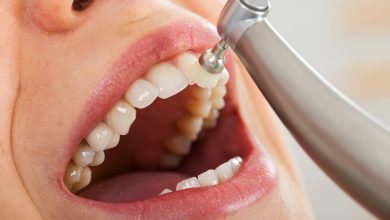How Often Should You Get Dental Cleanings? Secrets Revealed!

You should get dental cleanings every six months to maintain oral hygiene and prevent dental issues. Regular dental cleanings every six months are essential for maintaining optimal oral health and preventing dental problems.
Neglecting dental cleanings can lead to the buildup of plaque and tartar, which can result in tooth decay, gum disease, and other oral health issues. During a dental cleaning, a dental hygienist will remove any plaque and tartar from your teeth, polish them, and provide guidance on proper oral hygiene practices.
By scheduling dental cleanings every six months, you can help ensure a healthy and beautiful smile for years to come.

Credit: dentistry.uic.edu
The Importance Of Dental Cleanings
The importance of regular dental cleanings cannot be overstated. By getting dental cleanings on a consistent schedule, you can prevent potential dental problems and maintain good oral health.
Regular cleanings help remove plaque and tartar buildup that cannot be addressed through regular brushing and flossing alone. This buildup can lead to gum disease, tooth decay, and other oral health issues. Dental cleanings also give your dentist the opportunity to examine your mouth for any signs of potential problems, such as cavities or gum disease, allowing for early intervention and treatment.
For most people, it is recommended to get dental cleanings every six months. However, this frequency can vary based on individual needs and the recommendation of your dentist. Some individuals with specific dental conditions or higher risk factors may need more frequent cleanings to maintain optimal oral health.
Remember, prevention is key when it comes to dental care. Regular dental cleanings, along with a good oral hygiene routine at home, can help keep your teeth and gums healthy and prevent more serious dental issues in the long run.
How Dental Cleanings Work
Regular dental cleanings are essential for maintaining good oral health. The professional teeth cleaning process typically involves several steps. First, the dental hygienist will examine the mouth and check for any signs of gum disease or tooth decay. Next, they will use special tools to remove plaque and tartar buildup from the teeth. This may include scraping or ultrasonic scaling. The hygienist will also polish the teeth to remove surface stains and make them smooth. Finally, they may apply a fluoride treatment to strengthen the teeth and protect against cavities.
Dental cleanings are typically recommended every six months, although some individuals may require more frequent cleanings depending on their oral health needs. It’s important to follow your dentist’s recommendations for regular cleanings to prevent dental problems and maintain a healthy smile.
| Tools used during dental cleanings: |
|---|
| – Dental mirror |
| – Scaler |
| – Ultrasonic cleaner |
| – Polishing cup |
| – Dental floss |
| – Fluoride treatment |
The dental hygienist plays a crucial role in dental cleanings. They are specially trained to perform cleanings and assist the dentist. They have the knowledge and skills to properly clean and care for your teeth. They will also provide you with tips for maintaining good oral hygiene at home, such as proper brushing and flossing techniques.
By scheduling regular dental cleanings and following the advice of your dental hygienist, you can keep your teeth and gums healthy and ensure long-term oral health.
Factors To Consider For Dental Cleaning Frequency
The frequency of dental cleanings can vary depending on several factors. Age and dental health are important considerations when determining how often you should get a dental cleaning. Younger individuals without any specific dental concerns may only need to visit the dentist for a cleaning once or twice a year. However, older adults or individuals with certain dental conditions may require more frequent cleanings, such as every three to four months.
Dental history and previous treatments also play a role in determining the frequency of cleanings. If you have a history of dental issues or have undergone treatments such as gum disease treatment or root canal therapy, your dentist may recommend more frequent cleanings to maintain your oral health.
Lastly, your oral hygiene habits are crucial in determining the frequency of dental cleanings. If you have impeccable oral hygiene, including regular brushing, flossing, and using mouthwash, you may require fewer cleanings. However, if your oral hygiene is lacking, your dentist may suggest more frequent cleanings to prevent the buildup of plaque and tartar.
Age And Dental Health
Age plays a significant role in determining how often you should get dental cleanings. For adults, it is generally recommended to have dental cleanings every six months. This frequency helps maintain optimal dental health and enables early detection of any potential oral health issues. Children, on the other hand, may require dental cleanings more frequently as they are more susceptible to tooth decay and cavities. Pediatric dentists typically suggest dental cleanings every three to four months for children. As for seniors, their dental cleaning frequency may vary depending on their oral health status. Those with good oral health may follow the normal six-month schedule, while those with specific dental concerns may need more frequent cleanings. It is crucial to consult with a dentist to determine the appropriate dental cleaning frequency based on individual circumstances.
Dental History And Previous Treatments
For individuals with extensive dental work, it is crucial to maintain regular dental cleanings to ensure optimal oral health. The frequency of dental cleanings may vary depending on the individual’s specific dental history and previous treatments.
If you have a history of gum disease, these cleanings become even more important. Gum disease can lead to serious oral health issues if not properly addressed, so it is recommended to have more frequent cleanings to prevent further damage or complications.
Individuals with dental implants also require regular dental cleanings to maintain the health and longevity of their implants. Implants can be prone to plaque and tartar buildup, which can ultimately impact their functionality and durability. Regular cleanings can help to keep the implants clean and reduce the risk of complications.
It is always best to consult with your dentist to determine the appropriate frequency of dental cleanings based on your unique dental history and individual needs.
Oral Hygiene Habits
Oral hygiene habits play a crucial role in determining how often individuals should get dental cleanings. Individuals with excellent oral hygiene, characterized by regular brushing at least twice a day, flossing, and using mouthwash, typically require dental cleanings every six months. These individuals have established a consistent routine that effectively removes plaque and prevents tartar buildup.
On the other hand, individuals with poor oral hygiene, characterized by irregular brushing, infrequent flossing, and a lack of mouthwash use, require more frequent dental cleanings. For those with poor oral hygiene, dental cleanings every three to four months may be necessary to properly remove existing tartar, reduce the risk of cavities, and address any oral health issues.
Signs That Indicate You Need More Frequent Dental Cleanings
Signs That Indicate You Need More Frequent Dental Cleanings:
Persistent bad breath, also known as halitosis, is a common sign that you may need more frequent dental cleanings. This unpleasant odor can be caused by bacteria that accumulate in your mouth, leading to oral health problems. Bleeding gums during brushing or flossing is another indication that you may need to visit your dentist more often. This can be a sign of gum disease, which requires professional cleanings to remove plaque and tartar buildup. Notable plaque buildup on your teeth is also a sign that regular cleanings are necessary. Plaque left untreated can harden into tartar, increasing the risk of cavities and gum disease.
Secrets To Maintaining Dental Cleanings
Regular dental cleanings are essential for maintaining good oral health. Brushing and flossing regularly is the first step in preventing plaque buildup and gum disease. It is recommended to brush your teeth at least twice a day and floss at least once a day to remove food particles and bacteria from hard-to-reach areas. A healthy diet, rich in fruits and vegetables, can also promote strong teeth and gums. Limiting sugary foods and drinks can help prevent tooth decay. Additionally, making lifestyle choices that prioritize oral health – such as avoiding smoking and excessive alcohol consumption – can have a positive impact on your overall dental hygiene. Finally, follow-up dental appointments are crucial to ensure any oral health issues are addressed promptly. Your dentist will recommend how often you should schedule cleanings based on your individual needs and oral health status. By following these practices, you can maintain a healthy smile and prevent dental problems in the long run.
Frequently Asked Questions Of How Often Should You Get Dental Cleanings
Is Teeth Cleaning Every 3 Months Too Much?
Teeth cleaning every three months is not too much. Regular cleanings help prevent plaque buildup, gingivitis, and tooth decay. It’s recommended by dentists to maintain good oral hygiene and prevent future dental problems.
Do You Really Need Teeth Cleaning Every 6 Months?
Regular teeth cleaning every 6 months is important for maintaining your oral health. It helps remove plaque, tartar, and bacteria buildup, reducing the risk of cavities, gum disease, and bad breath. Proper oral hygiene combined with professional cleaning ensures a healthy smile.
What Are The Disadvantages Of Teeth Cleaning?
Disadvantages of teeth cleaning include temporary tooth sensitivity, potential gum irritation, and rare instances of tooth damage. However, these drawbacks are minimal and temporary compared to the long-term benefits of maintaining good oral health. Regular teeth cleaning is crucial for preventing cavities, gum disease, and other dental problems.
What Happens If You Don’t Go To The Dentist For 2 Years?
Skipping dental visits for 2 years may lead to oral health problems like tooth decay, gum disease, and bad breath. Regular check-ups help detect issues early, saving you from pain and costly treatments. Take care of your oral health to maintain a healthy smile.
Conclusion
Regular dental cleanings play a crucial role in maintaining optimal oral health. By scheduling cleanings every six months, you can prevent tartar buildup and reduce the risk of tooth decay and gum disease. Remember, an ounce of prevention is worth a pound of cure.
So prioritize your dental health and make regular cleanings a part of your oral care routine. Your smile will thank you!





